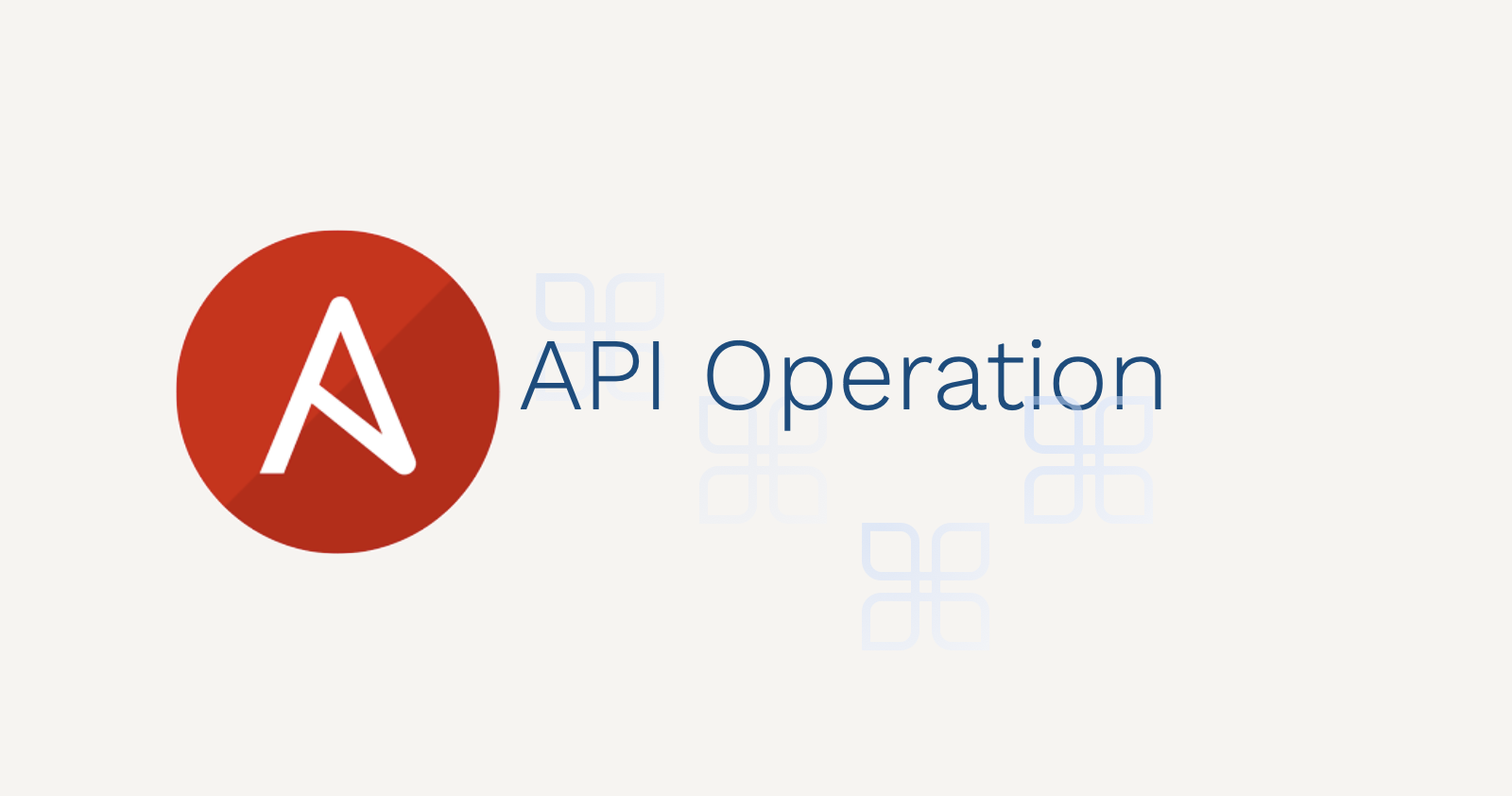1: Performing API Operation
 Samir Ranjan Parhi
Samir Ranjan Parhi
Ansible is not only limited to doing certain configuration , rather you can repurpose it to perform various API operation. Even you can create a playbook which can do an integration test by pipelining various api methods (GET, POST, DELETE, PUT) and validate the json data.
In this blog we will understand this by taking a simple case study.
Problem statement : Find out the top 10 Julia repository which has highest GitHub star
to do this we would need few things:
GitHub api endpoint uri: https://api.github.com/search/repositories
query filter : "q": “language:julia”, "sort": "stars", "per_page": 100
Authorization token header.
store the response json.
Now let’s understand how can we achieve it using ansible. Ansible has a module called ansible.builtin.uri which can be used to perform this task. official
Lets Write the playbook
- hosts: localhost
gather_facts: false
vars:
Q: "language:julia"
type: "repositories"
per_page: "10"
tasks:
- name: Set GitHub PAT fact
set_fact:
github_pat: "{{ lookup('env', 'GITHUB_TOKEN') | default('', true) }}"
- name: Set GitHub Address
set_fact:
github_addr: "https://api.github.com/search/repositories?q={{ Q }}&per_page={{ per_page }}&page=1&sort=stars"
- name: get Response from and APi
ansible.builtin.uri:
url: "{{ github_addr }}"
status_code: [200, 201]
method: get
headers:
Authorization: "{{ github_pat }}"
return_content: yes
register: api_response
- name: find length of the Repo
ansible.builtin.debug:
msg: "{{ item.name }}"
- name: Add only names to a dictionary
ansible.builtin.set_fact:
result_repo_name: "{{ result_repo_name | default({}) | combine( item ) }}"
loop: "{{ api_response.json.items }}"
in the above code status_code specifies what is the intended status code for this task. in this context 200, 201 . If the status code is beyond 200 or 201 i,e 3xx, 4xx, 5xx the task will fail.
if you closely observe we are using the register key. so the output response will be store inside the variable api_response and we can further extend this playbook to do other tasks.
Like we did adding only names to a Dictionary.
So Now the important thing is what all are the debugging steps:
- when you use
ansible.builtin.urithe response which get registered in the variable are under a Dictionary calledjson
if you debug api_response you can find the the output as below :
"date": "Wed, 26 Mar 2025 14:32:21 GMT",
"elapsed": 0,
"failed": false,
"json": {
"incomplete_results": false,
"items": [
{
"allow_forking": true,
"archived": false,
"assignees_url": "https://api.github.com/repos/JuliaLang/julia/assignees{/user}",
"blobs_url": "https://api.github.com/repos/JuliaLang/julia/git/blobs{/sha}",
"branches_url": "https://api.github.com/repos/JuliaLang/julia/branches{/branch}",
"clone_url": "https://github.com/JuliaLang/julia.git",
"fork": false,
"forks": 5556,
"forks_count": 5556,
"forks_url": "https://api.github.com/repos/JuliaLang/julia/forks",
"full_name": "JuliaLang/julia",
"git_commits_url": "https://api.github.com/repos/JuliaLang/julia/git/commits{/sha}",
"git_refs_url": "h
},
{
"allow_forking": true,
"archived": false,
"assignees_url": "https://api.github.com/repos/fonsp/Pluto.jl/assignees{/user}",
"blobs_url": "https://api.github.com/repos/fonsp/Pluto.jl/git/blobs{/sha}",
"branches_url": "https://api.github.com/repos/fonsp/Pluto.jl/branches{/branch}",
"clone_url": "https://github.com/fonsp/Pluto.jl.git",
"fork": false,
"forks": 5556,
"forks": 294,
"forks_count": 294,
"forks_url": "https://api.github.com/repos/fonsp/Pluto.jl/forks",
"full_name": "fonsp/Pluto.jl",
"git_commits_url": "https://api.github.com/repos/fonsp/Pluto.jl/git/commits{/sha}"
}
]
Now if you want to display let’s say blobs_url of a repo you need to write it as below :
❌ Wrong Way:
- name: Add only names to a dictionary
ansible.builtin.set_fact:
result_repo_name: "{{ item.blob_url }}"
loop: "{{ api_response[json][items] }}"
✅ Right approaches:
- name: Add only names to a dictionary
ansible.builtin.set_fact:
result_repo_name: "{{ item.blob_url }}"
loop: "{{ api_response.json.items }}"
Why ?
Coz if you use [] notation it expect whatever inside [] should be a static variable and ansible want you to define that variable may be you can get variable undefined error. But when you use . notation it is to access the variable inside a dictionary which is dynamic.
🖋️ Tip of the Day (Jinja2) :
you can not use Jinja2 template in vars. Jinja2 template are only get populated during run times. set_fact in ansible are the way to declare a varriable in any programming language.
❌ Wrong approaches:
- hosts: localhost
gather_facts: false
vars:
github_pat: "{{ lookup('env', 'GITHUB_TOKEN') | default('', true) }}"
- name: debug github token
debug:
var: "{{ github_pat }}"
✅ Right approaches:
- hosts: localhost
gather_facts: false
tasks:
- name: Set GitHub PAT fact
set_fact:
github_pat: "{{ lookup('env', 'GITHUB_TOKEN') | default('', true) }}"
- name: debug github token
debug:
var: "{{ github_pat }}"
More things to unlock 🔓. Happy Ansibling !
Subscribe to my newsletter
Read articles from Samir Ranjan Parhi directly inside your inbox. Subscribe to the newsletter, and don't miss out.
Written by

Samir Ranjan Parhi
Samir Ranjan Parhi
An enthusiastic individual dedicated to open-source development and contribution, boasting over 8 years of experience as a DevOps engineer. Proficient in designing resilient and secure infrastructures using technologies like Docker, Kubernetes, and Azure. Strongly advocate for the implementation of ServiceMesh and API management tools to ensure the secure deployment of microservices. Passionate about mentoring others, with a deep love for technology and active participation in the open-source community.